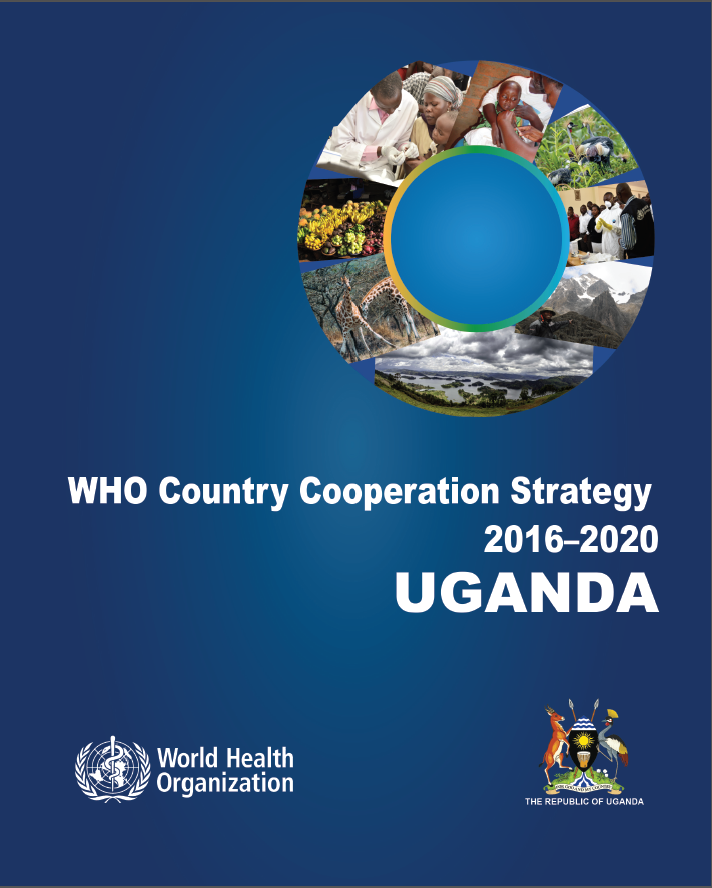
WHO in Uganda Country Cooperation Strategy 2016-2020
WHO concluded implementation of the second generation Country Cooperation Strategy (CCS) from
2009 to 2015. During this period, the country made some significant health achievements including
increasing the life expectancy of Ugandans at birth from 45.7 years to 62.2 years for male and 50.5years
to 64.2 years for females from 1991 to 2014 respectively. Infant mortality rate dropped from 111 to
38 deaths per 1,000 live births from 1990 to 2015 and under 5 mortality rates dropped from 187 to
55 deaths per 1,000 live births in the same period.
This third generation CCS builds on these successes and aims to further contribute to improved health
outcomes for the people of Uganda. The CCS III followed a participatory approach with participation
of WHO country office staff members and wide consultations with senior level decision makers from
government, UN agencies, development partners, NGOs and Civil Society Organizations.
The CCS is aligned to the National Development Plan II and the Health Sector Development Plan
2015/16-2019/20 which were anchored on Uganda Vision 2040. WHO’s 12th General Programme
of Work (2014-2019), the WHO Regional Priorities, the Transformation Agenda and the United
Nations Development Assistance Framework (UNDAF) 2016-2020, provided further guidance on the
selection of strategic priorities for the CCS.
With close collaboration and support from all partners and stakeholders, we hope the CCS will enable
us to contribute yet again to the government’s public health commitments and to strengthened health
systems for Universal Health Coverage.
We thank all the people and organizations that contributed to the development of this CCS. We
look forward to synergistic collaboration during the implementation, monitoring and evaluation of the
CCS as we strive to contribute to the achievement of national health priorities and the Sustainable
Development Goals.


